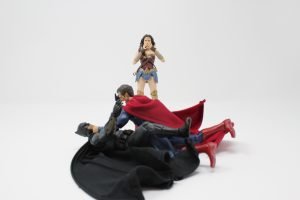
5 Tips for a Great Presentation
Tony Robins shares that we as humans have human needs and they are, certainty, variety, connection, contribution, growth, and significance. In daily life, you can

The Drama Triangle was first introduced by Dr. Stephen Karpman in 1961. He used the words Victim, Persecutor, and Rescuer to describe characteristics that we can display at different times in our lives. I will use the terms Victim, Hero, and Villain to describe the Drama Triangle.

As a People Pleaser/ Co-Dependent it is easy to see how we can fall prey to such behaviors. When we are trapped in the blame game, we do nothing more than complain, excuse, and sacrifice ourselves for whatever everybody else wants. We might even think our pride to be under attacked as we do so much for so many.
As a Leading Lady, you wouldn’t want to take on the role of others. Would you want to watch a movie that has one dominate actor speaking the lines for all actors? Can you imagine that? Adapting and allowing others to play their individual roles is important because character development relies on many characters, not just one. Being an attentive Leading Lady means letting everyone play their individual parts and allowing for character development.
We might find ourselves taking away roles from others and trying to be their hero because we think we should. When things don’t go our way and people don’t do what we ask, we can become the victim—full of excuses and blame. Finding fault in others is an easy trap to fall into, as we often feel as if we do more anyone else, so unknowingly we become the villain. To create accountability in our lives we need to make a conscious decision to stop blaming the situation and the actions of others and look inward instead.

Blame is an interesting thing, as we use it so much in our life to explain away anything we might find challenging. Keep in mind that the Drama Triangle is an observation used to recognize our part to escape its grasp. One of the first things you can do to become more aware of its snare is to question your own actions. What is the solution, and is this response going to bring me closer to it or further from it?
So, how do we make sure we don’t fall onto the Victim, Hero, Villain path? Here are three tips to help you avoid the pitfalls of the Drama Triangle:
When you decide to explore your thinking rather than immediately step into another’s role, you are starting to display the characteristics of becoming a Leading Lady in your own life.
Deciding to go from blame to accountability begins with you. When you turn the Drama Triangle from Victim, Villain, and Hero to Creator, Challenger, and Coach you begin to show up as wanting to find solutions so everyone can develop their character qualities as you all grow together.
If you want to know more about the Karpman Drama Triangle, you can find that information at his official website: https://www.karpmandramatriangle.com/
Get the Zoom link sent to your inbox and join the live call of the week.

Tony Robins shares that we as humans have human needs and they are, certainty, variety, connection, contribution, growth, and significance. In daily life, you can

Positive Thinking I love a great positive thought as much as the next person, daily affirmations, and aspiring quotes used to be a part of

I was at the store and saw many men buying chocolates, flowers, and stuffed animals. As a lady that will be married 24 years on

As a culture, we have gotten a little confused about the difference between worth and value in my opinion. A few things have helped me